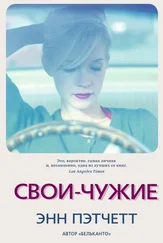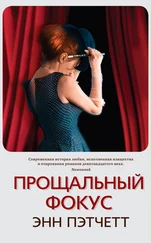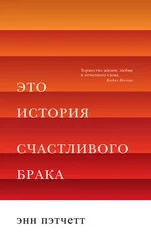“He must have had surgery when it happened. If you get shot in the knee then somebody is going to have to operate.”
Maeve looked at me like I had just opened the car door and taken the seat beside her, a complete stranger. “He wasn’t shot.”
“Of course he was.”
“He broke his shoulder in a parachute jump and he tore something in his knee, or he jammed the knee. He landed on his left leg and then he fell over and broke his left shoulder.”
There was the Dutch House right behind her, the backdrop to everything. I wondered if we had grown up in the same house. “How have I always thought he was shot in the war?”
“I have no idea.”
“But he was in a hospital in France?”
“For his shoulder. The problem was no one paid attention to his knee when it happened. I guess the shoulder really was a mess. Then the knee hyperextended over time. He wore a brace for years and then the leg got stiff. They called it artho—” She stopped mid-syllable.
“Arthrofibrosis.”
“Exactly.”
I remembered the brace as being the source of the pain: heavy and ill-fitting. He complained about the brace, not the knee. “What about his shoulder?”
She shrugged. “I guess it turned out okay. I don’t know, he never mentioned his shoulder.”
All through medical school, and for at least a decade after, I had dreams in which I was in grand rounds, presenting a patient I had never examined, which was how I felt that Easter morning. Cyril Conroy is an American paratrooper, thirty-three years of age. He was not shot…
“I’ll tell you something,” Maeve said. “When he had his heart attack, I always thought it was the stairs. I couldn’t imagine him trying to make it to the sixth floor of anything. He must have been mighty pissed off at someone to walk up a stairwell in that kind of heat to look at window sealing. As far as I know he only went to the third floor of the Dutch House twice in his life: the day he brought Mommy and me to see the place for the first time, and the day I came home for Thanksgiving and Andrea announced my exile. Remember that? He carried my bag upstairs. And then when we got up there he had to lie down on the bed. His leg was killing him. I put my suitcase under his foot to elevate it. I should have been screaming mad about Andrea but all I could think was that I was never going to get him down the stairs again. We were going to have to live in the two little bedrooms off the ballroom, me and Dad. It’s sort of a sweet thought, really. I wish we had. He said, ‘It’s a nice-looking house but it’s too damn tall.’ I told him he should sell it then and buy a ranch house. I told him that would solve every problem he had, and we both laughed. That really was something,” she said, looking out the windows at the Buchsbaums’ cherry trees, “getting Dad to laugh about anything in those days.”
* * *
There are a few times in life when you leap up and the past that you’d been standing on falls away behind you, and the future you mean to land on is not yet in place, and for a moment you’re suspended, knowing nothing and no one, not even yourself. It was an almost unbearably vivid present I found myself in that winter when Maeve drove me to Connecticut in the Oldsmobile. She kept meaning to get rid of it but we had so little from the past. The sky was a piercing blue and the sun doubled back on the snow and all but blinded us. In spite of everything we’d lost, we’d been happy together that fall we spent in her little apartment. Andrea had sold the company lock, stock, and barrel. Every last building our father had owned was gone. I couldn’t even imagine how much money it must have come to. I wanted to tell Maeve that wringing some spare change out of Norma and Bright’s future, when I probably wasn’t even capable of staying in school long enough to do that, wasn’t reason enough for us to be separated. I’d go to college, of course I’d go to college, but for now I still wanted to play basketball with my friends and sit with her at the kitchen table over eggs and toast and talk about our days. But the world was in motion and it felt like there was nothing we could do to stop it. Maeve had made up her mind that I was going to Choate. She had also made up her mind that I would go to medical school. When she added in a sub-specialty it was the longest and most expensive education she could piece together.
“Does it even matter to you that I don’t want to be a doctor?” I asked. “Does what I want to do with my life factor into this?”
“Well, what do you want to do?”
I wanted to work with my father, to buy and sell buildings. I wanted to build them from scratch, but that was gone. “I don’t know. Maybe I’ll play basketball.” I sounded petulant even to myself. Maeve would have loved to have had my problems, to explore the limits of how extensively and expensively she could be educated.
“Play all you want when you get off work at the hospital,” she said, and followed the signs to Connecticut.
The snow was coming down heavy and wet in New York on the Wednesday before Thanksgiving. Penn Station looked like a feedlot and we, the anxious travelers, were the cows standing in pools of melting slush, bundled up and pressed together in the overheated terminal. We couldn’t take off our coats and hats and scarves because our arms were full of suitcases and bags and books we didn’t want to put on the disgusting floor. We stared at the departures board, awaiting instruction. The sooner we could get to the train, the better our chances of claiming a seat that was forward facing and not too close to the toilet. A kid with a backpack full of bricks kept turning to say something to his girlfriend, and every time he did he clocked me with the full weight of his possessions.
I wanted to be back in my dorm room at Columbia.
I wanted to be on the train.
I wanted to be out of my coat.
I wanted to learn the layout of the periodic table.
Maeve could have saved me from all of this had she troubled herself to come to New York. Now that she had overseen the delivery of who knew how many tons of frozen vegetables to grocery stores for the holiday, Otterson’s was closed until Monday. My roommate was having Thanksgiving with his parents in Greenwich, so Maeve could have slept in his bed and we could have eaten Chinese and maybe seen a play. But Maeve would come to New York City only if circumstances demanded it—say, when my appendix ruptured the first semester of my freshman year of college. I rode to Columbia-Presbyterian with the hall proctor in an ambulance. When I woke up from surgery, Maeve was there asleep, her chair pulled next to the bed, her head on the mattress beside my arm. The dark mess of her hair spread out across me like a second blanket. I had no memory of calling her, but maybe someone else had. She was my emergency contact after all, my next of kin. I was still floating in and out of the anesthesia, watching her dream, thinking, Maeve came to New York. Maeve hates coming to New York . It had something to do with how much she had loved Barnard and all the potential she had seen in herself then. New York represented her shame about things that were in no way her fault, or at least that’s what I was thinking. I closed my eyes and when I opened them again she was sitting up in that same chair, holding my hand.
“There you are,” she said, and smiled at me. “How are you feeling?”
It would be years before I understood the very real danger of what had happened to me. At the time I saw the surgery as something between a nuisance and an embarrassment. I started to make a joke but she was looking at me with such tenderness I stopped myself. “I’m okay,” I said. My mouth was sticky and dry.
Читать дальше
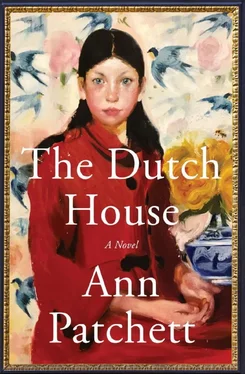


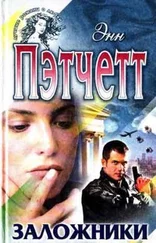
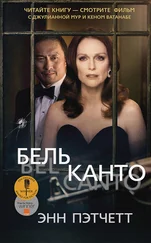
![Энн Пэтчетт - Прощальный фокус [litres]](/books/402782/enn-petchett-prochalnyj-fokus-litres-thumb.webp)
